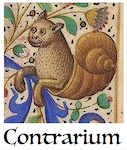Sweden. Day 39. My three answers.
Today I took my last walk around Björkö. I visited the hairy cows and the horses for one last time. Then I went towards the sea in Marum, crossed the little bridge and returned through the forest to Kulla. I did not see any lynx, moose or fox, but I found a few large bones in the forest. I don’t know which animal it was, but it seems to be pretty large. It could be a moose. It could even be a human being, for all I know. But I don’t know much about bones. I took the smaller one with me, the other ones I left at BKN for an artist that does sculpture with bones.
All I can say is, I will miss that little island.
Now I am on the bus towards Stockholm — actually, I started writing on the bus but now I am already in Stockholm, but I will write about it tomorrow — and I am thinking about the three questions of my documentary. Some people asked me, “But what are your answers? How do you view Swedish people?”
Well, it’s hard to say. I don’t think I lived enough time around them to know them all that much. My impression is that they are very nice and polite, but, as one woman I interviewed said, “there’s a lot under the surface.” Perhaps, like characters in a Bergman movie or a play by Strindberg, they appear nice and friendly at a distance but, deep down, they are tormented individuals haunted by who knows which demon or psychological turmoil. How can you know? They don’t talk about such things. At least, not to strangers like me. As another interviewee put it, they are “open, but also a bit closed”, and I like them this way.
Good things about Sweden? So many I could not list all here, but I like the general idea that the rules in society are not so much imposed by force, as by a general trust that people will do the right thing. Like the idea of the “Allemansrätten”, that law that allows you to walk on any open land, even if it’s private property. I don’t think any other country has that. I remember when I visited lake Ontario in Canada and was shocked to find out that a large part of its margins were occupied by private houses and private beaches, and you couldn’t really walk around. The Swedish system let people walk around anywhere, but they trust that you will not throw garbage or break stuff or steal things. The same applies to Covid rules and so many other things: you do the correct things more because of social pressure than because of harsh impositions. Freedom and independence are very important here, and that’s a good thing.
The bad thing may be the other side of that, that perhaps you need to conform to the unspoken social rules and cannot try to be too different from everyone else. Do not think of painting your summer house in bright tones of pink or violet… Also, the other side of individuality is isolation and possibly loneliness. Perhaps it is difficult for someone coming from another country to integrate, to make friends, to “become Swedish” in any way; and even if you’re actually Swedish, if you live in the city you may not have much contact with your own neighbours and could end up dying alone and be found out only two years later, as that unfortunate character in the documentary “The Swedish Theory of Love”.
My favourite Swedish word? Well, I like “slut” (pronounced sloot), which means “end”, and I also like “Smultronstället”, which means “wild strawberries” — but I’m warming up to “hoppas”, which means hope.





